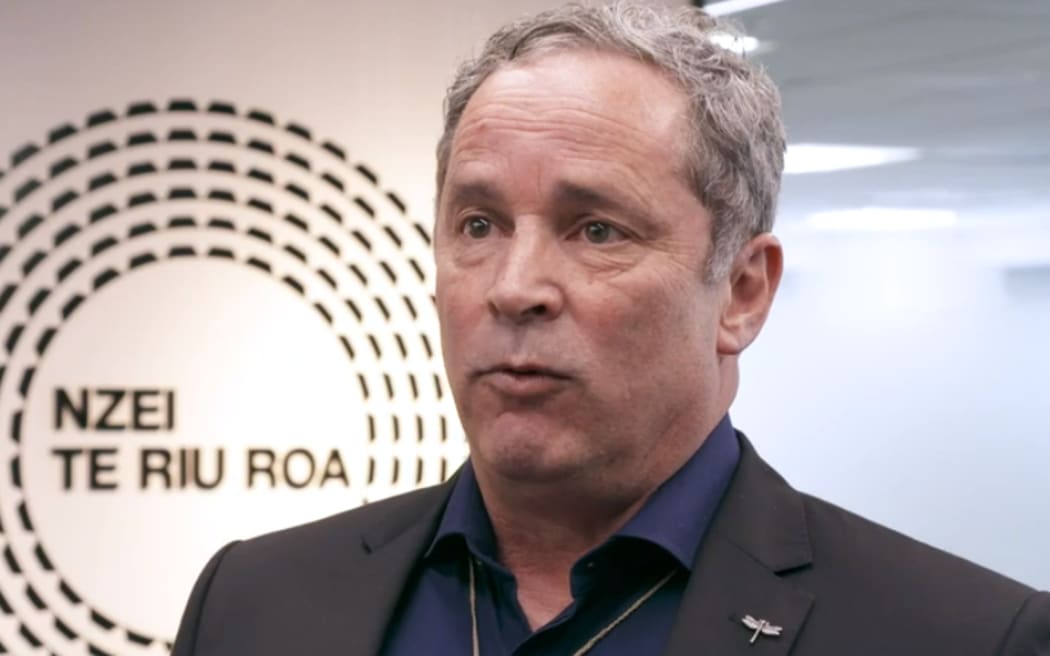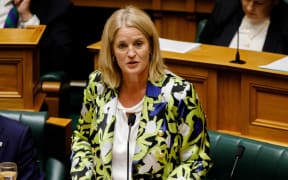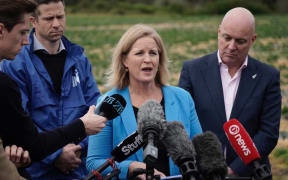
Labour Party's Carmel Sepuloni (left), Green Party's Ricardo Menéndez March (middle) and ACT Party's Dr Parmjeet Parmar. Photo: RNZ / Angus Dreaver / VNP / Phil Smith / Supplied / NZ National Party
Opposition parties have come out swinging against the announcement of benefit sanctions, with the Greens accusing the government of "pushing more people into poverty".
Social Development Minister Louise Upston announced a ramping up of benefit sanctions would begin from June - particularly for young people.
The ministry would begin "work check-ins" for jobseekers who have been on a benefit for at least six months, "particularly young people" to "make sure job seeker beneficiaries are taking appropriate steps to find employment and are receiving the right help".
She told Checkpoint the announcement signalled a "reset" of the welfare system.
But Labour's social development spokesperson Carmel Sepuloni said the government was unfairly assuming jobseekers were not wanting to start employment education or training pathways.
"Rather than being stingy on the minimum wage and bashing beneficiaries, the coalition government should be focused on lifting incomes for the poorest New Zealanders.
"People deserve to be supported in to meaningful, long term employment, and sanctions will not do this."
Sepuloni said the government pointed to evidence more than a decade old and that the most recent research from the Welfare Experts Advisory Group suggested that obligations and sanctions were problematic.
Meanwhile, Green Party social development and employment spokesperson Ricardo Menéndez March said the government was creating another measure to penalise the poorest people.
"Sanctions do not work. They do not support people into meaningful employment, nor support them to participate fully in their communities. Taking away people's incomes only makes it harder for people to get by," he said.
"This government is quickly building a legacy of cruelty. Instead of supporting people to provide for themselves and their whānau, this government has actively sought to push people further and further into poverty."
New Zealand's largest education union, NZEI Te Riu Roa, has also strongly condemned the "punitive sanctions" against people on welfare benefits.

NZEI Te Riu Roa president Mark Potter. Photo: RNZ / Angus Dreaver
It said any sanctions a government took against beneficiaries directly affected their children and their learning.
"We all know that whānau are struggling with the rising cost of living; and the children of beneficiaries will be feeling it doubly so. Children need a full stomach and a roof over their head to learn," said the union's president Mark Potter.
"Data from the PISA international survey from December last year shows us that there is a strong correlation between food security and learning, and we know that food security disproportionately affects tamariki Māori, who make up nearly a quarter of the students currently enrolled in schooling."
Potter said welfare sanctions were not effective ways to get people into jobs and the sanctions would further punish the country's "most vulnerable citizens".
"This step undercuts his government's commitment to ensuring every child experiences success in learning, because it will only increase the numbers of children living in poverty who will then struggle with learning," he said.
But the ACT party said the benefit sanctions were a "crucial lever" to deal with the "persistent minority" of people who opted to remain on a benefit long-term, even when they were in a position to work.
ACT social development spokesperson Dr Parmjeet Parmar said the minister has sent "an important signal that if you can work, you should work".
"Over 351,000 working-age New Zealanders were receiving a main benefit as of June 2023 - that's more than one-in-ten working age New Zealanders and, pre-COVID, 71 percent of main benefit recipients had been on welfare continuously for more than a year," she said.
"Greater use of existing sanctions is a first step toward a wider package of more substantial consequences for healthy long-term beneficiaries who evade work."





